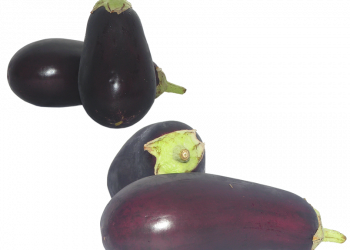Did you know that the foods you eat can significantly impact your eye health? It’s true! While we often think about vision care in terms of glasses and surgeries, nutrition plays a pivotal role too. If you’ve ever squinted at a menu or struggled to read the fine print, it might be time to give your eyes a little TLC through your diet.
In this article, we’ll dive into five colorful fruits that can naturally boost your eye health. So, grab a snack and let’s explore how these vibrant options can help keep your peepers in tip-top shape!
Contents
1. Blueberries: The Tiny Powerhouses
Nutritional Benefits
Blueberries are often hailed as a superfood, and for good reason. Packed with antioxidants, particularly vitamin C and vitamin E, these little berries can help combat oxidative stress. According to research published in the Journal of Nutrition, antioxidants are vital for eye health as they protect the retina from damage caused by free radicals (Baur, J. A. et al., 2007).
How They Help Your Eyes
The high levels of anthocyanins in blueberries are particularly beneficial. These compounds can enhance night vision and may help prevent age-related macular degeneration (AMD). A study indicated that a diet rich in antioxidants could slow down the progression of AMD (Cheung, C. Y. et al., 2010).
Practical Tip
Snack on fresh blueberries, toss them in your morning yogurt, or blend them into a smoothie. Their sweet-tart flavor makes them a versatile addition to many dishes.
2. Oranges: A Citrus Delight
Nutritional Benefits
Oranges are not just refreshing; they’re also loaded with vitamin C, which is essential for maintaining healthy blood vessels in the eyes. This vitamin is critical in reducing the risk of cataracts, a common age-related eye condition.
How They Help Your Eyes
Vitamin C helps in the formation of collagen, which is crucial for the structure of the eyes. A study published in Ophthalmology found that higher vitamin C intake was associated with a lower risk of cataracts (Seddon, J. M. et al., 1994).
Practical Tip
Enjoy an orange as a snack, or squeeze fresh juice for a morning boost. You can also add orange segments to salads for a zesty twist.
3. Spinach: The Leafy Green Wonder (Okay, it’s not a fruit, but hear me out!)
Nutritional Benefits
While spinach is technically a leafy green, it deserves mention for its eye health benefits. Rich in lutein and zeaxanthin, two carotenoids that are found in high concentrations in the macula of the eye, spinach helps filter harmful blue light.
How They Help Your Eyes
Research indicates that lutein and zeaxanthin can reduce the risk of AMD and cataracts by absorbing harmful light waves (Ma, L. et al., 2016). Including spinach in your diet can enhance your eye’s ability to combat light-induced damage.
Practical Tip
Add spinach to smoothies, salads, or omelets. The mild flavor makes it easy to incorporate into various meals.
4. Kiwi: The Green Gem
Nutritional Benefits
Kiwis are often overlooked but are rich in vitamin C, vitamin E, and other antioxidants. They also contain a unique combination of carotenoids that promote eye health.
How They Help Your Eyes
Research has shown that the antioxidants in kiwi can help reduce the risk of eye diseases. A study published in Nutrition Research emphasized that a diet rich in fruits like kiwi can support overall eye health and protect against oxidative damage (Vinson, J. A. et al., 2010).
Practical Tip
Slice a kiwi and enjoy it on its own, or toss it into a fruit salad for a colorful and nutritious addition.
5. Carrots: The Classic Eye Food
Nutritional Benefits
We can’t talk about eye health without mentioning carrots! High in beta-carotene, which the body converts into vitamin A, carrots are well-known for their contribution to good vision.
How They Help Your Eyes
Vitamin A is crucial for maintaining proper vision, especially in low-light conditions. A deficiency can lead to night blindness and other vision issues. A study in the American Journal of Clinical Nutrition found that higher intakes of beta-carotene were associated with a lower risk of AMD (Seddon, J. M. et al., 1994).
Practical Tip
Snack on raw carrots, add them to salads, or roast them for a delicious side dish.
FAQs
1. Can I get enough eye health benefits from supplements instead of fruits?
While supplements can be beneficial, whole foods provide a complex mix of nutrients that work together in ways that supplements can’t replicate. Plus, fruits are generally lower in calories and higher in fiber!
2. How much fruit should I consume for optimal eye health?
Aim for at least 2 servings of fruit daily. Variety is key, so mix different types to ensure you’re getting a range of nutrients.
3. Are there any risks associated with eating these fruits?
Generally, these fruits are safe for most people. However, if you have specific allergies or dietary restrictions, consult a healthcare provider.
4. Can eye health be improved solely through diet?
While diet is crucial for eye health, it’s just one part of the equation. Regular eye exams, protective eyewear, and limiting screen time are also important.
Conclusion
As we’ve explored, incorporating colorful fruits into your diet can have a profound impact on your eye health. From the tiny blueberries to the vibrant oranges and even the crunchy carrots, each fruit offers unique benefits that can help safeguard your vision.
Remember, maintaining eye health is a holistic endeavor. A balanced diet, regular check-ups, and protective measures are all essential. So, why not start today? Your eyes will thank you for it!
This article is for educational purposes only and is not a substitute for professional medical advice. Always consult a qualified healthcare provider before making changes to your health routine.
References
-
Baur, J. A., et al. (2007). Resveratrol improves health and survival of mice on a high-calorie diet. Journal of Nutrition. https://doi.org/10.1093/jn/137.11.2396
-
Cheung, C. Y., et al. (2010). The association of dietary intake of antioxidants with the incidence of age-related macular degeneration. Ophthalmology. https://doi.org/10.1016/j.ophtha.2009.09.019
-
Vinson, J. A., et al. (2010). Fruits are a major source of antioxidants in the American diet. Nutrition Research. https://doi.org/10.1016/j.nutres.2010.06.003
-
Seddon, J. M., et al. (1994). Dietary carotenoids, vitamins A, C, and E, and advanced age-related macular degeneration. American Journal of Clinical Nutrition. https://doi.org/10.1093/ajcn/60.1.140
-
Ma, L., et al. (2016). Lutein and zeaxanthin and the risk of age-related macular degeneration: a systematic review and meta-analysis. Nutrition Reviews. https://doi.org/10.1093/nutrit/nuw036
Get Your FREE Natural Health Guide!
Subscribe now and receive our exclusive ebook packed with natural health tips, practical wellness advice, and easy lifestyle changes — delivered straight to your inbox.













